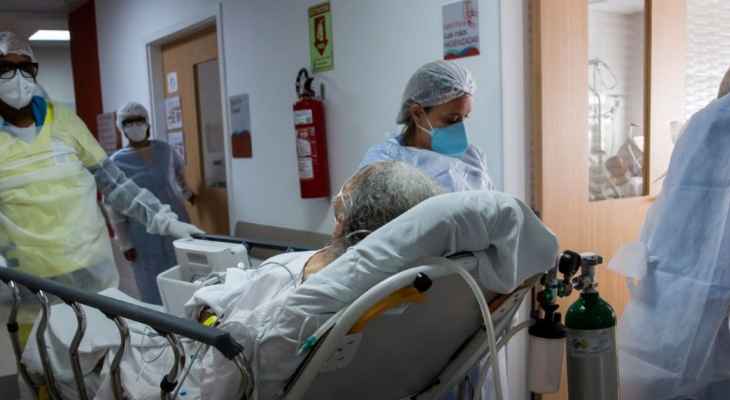American researchers found that people who had previously contracted Covid-19 were more likely to develop a group of traumatic brain injuries a year after recovery compared to people who had never had coronavirus.
The year-long study, published in the journal Nature Medicine, focused on assessing the brain health of patients with 44 different diseases using the medical records of millions of veterans in the United States.
Patients who previously contracted COVID-19 suffered from brain and other neurological disorders, seven percent more than a similar group of veterans who never had the disease. The research team said the results of the study could be linked to injuries to nearly 6.6 million Americans with brain disorders associated with their Covid-19 infection.
Lead investigator Dr. Ziad Al-Ali of the University of Washington School of Medicine said in a statement that the results show the devastating long-term effects of COVID-19 infection.
Al-Ali and colleagues at Washington University School of Medicine, in collaboration with the St. Louis Department of Veterans Affairs Health System, reviewed the medical records of about 154,000 US veterans who have tested positive for COVID-19 since March 1. , 2020 to January 15, 2021
They compared those records with those of 5.6 million patients who did not contract COVID-19 over the same time period, and another group of 5.8 million people in the period before the virus entered the US.
Memory impairment, commonly referred to as brain fog, was the most common symptom. Comparing different groups, the study concluded that people with COVID-19 are 77% more likely to have memory problems.
In addition, people who contracted the virus were 50 percent more likely to have a stroke caused by blood clots than people who had never been infected.
In addition, former COVID-19 patients are 80% more likely to have an EEG, 43% more likely to have mental health problems such as anxiety or depression, 35% more likely to have headaches, and 42% more likely to have motor skills. disorders such as tremor compared to other groups.
Source: El Nashra
